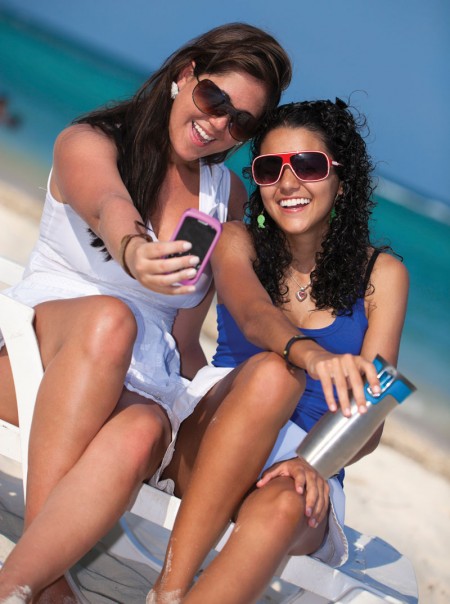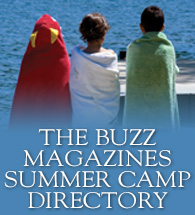Safe Travels
Staying out of harm’s way


Teens have more opportunities than ever to travel, often without parents, during Spring Break and the summer. Before any traveling takes place, frank discussion about safety needs to happen first. (Photo: istockphoto.com/apomares)
The Buzz is partnering with Crime Stoppers to help keep our residents safe. Writer Rania Mankarious is executive director of Crime Stoppers of Houston. See City Corner at thebuzzmagazines.com for more safety tips from Crime Stoppers.
This time of year is when parents often find themselves having conversations about whether to allow teenagers to go on a Spring Break trip sans parents.
I remember my senior trip like it was yesterday. My parents asked only: Who is going? Who is meeting you there? Where are you staying? How are you going and coming?
That was 20-plus years ago. Since that time, the world has been hit with stories of young people who have gone missing; human trafficking has become a major concern; and violence has erupted in common go-to destinations like Mexico and Europe.
At the same time, in today’s global society, teens have many opportunities to explore the globe. The responsibility to talk about travel safety is more important than ever.
Here are some issues we hope parents will consider before their young travelers hit the road.
- Travel in a group. Everybody in that group must be known to you and your family.
- Ask: Is anyone meeting the group at the destination? In my line of work, “friends-of-friends” is synonymous with “terrible trouble.” When your teen/young adult is far from you – in another state or country – it’s not time to leave them in the hands of someone unknown.
- Nail down the basics and gather as much information as possible. Where are they staying – hotel, youth hostel, private home? Do your children know how to navigate the currency? Do they know where the local U.S. Embassy is located? Do they know whom to call in case of an emergency? How will they be traveling while away – renting a car (is that safe?), Uber, taxi, hotel car service? With each of these topics, parents should do the research with their children. Times have changed – hopping into a cab or Uber here may be second nature; in a foreign country it could be dangerous. Similarly, converting money between currencies here may be easy and safe; in the travel destination at hand, it could create targets for robbery and theft.
- Going off alone should never be done (Google “Michigan State University student Cabo San Lucas Nightmare, Kidnapping and Rape, Spring Break 2014”); this means if you’re about to enter a nightclub or overly populated area, create a meeting space and designate a time that is understood and agreed to by all before you walk into the event.
- Going off with strangers you meet while on vacation should never be done (Google “Natalee Holloway”). For the teens/young adults who might “fall in love” over their four-day getaway, establish an agreement beforehand to purchase a ticket for the love of their life to come visit them in Houston in exchange for your child’s promise not to go off alone together. Chances are, two weeks after getting back home, this love will have deflated and you’ll never have to worry about that ticket.
- Travel destinations may have different drinking laws. Even if it’s legal for your child to drink in the destination city, the discussion about drinking responsibly must still be had. According to a survey by the Journal of American College of Health, during the Spring Break week, the average male consumes 18 alcoholic drinks a day and the average female consumes 10. About 50 percent of those surveyed drank until they either got sick or passed out, and 25 percent had sexual experiences while intoxicated that were later labelled “regretful.”
- Medical needs: In addition to everything else, make sure your child is healthy enough to travel and knows what health clinic to go to in the event of a medical emergency.
Family travel
- By car: Establish a route; determine stops; have spare parts. Have maps to back up online navigation.
- Traveling by air: Have copies of passports, licenses and tickets; see if identification of minor children is required.
- Read up on the destination. Learn crime trends (pick-pockets?), areas of concern and travel warnings. If abroad, know location of the U.S. Embassy.
- Have proper currency prior to arriving.
- Rent car seats in advance.
- Ask your hotel to arrange a car service to come to the airport. Work with concierge to arrange car travel.
- Be familiar with your travel destination. Study the map; call ahead and make arrangements in advance.
- Talk to your kids about where you are going; make sure they learn the name of the hotel; put a piece of paper with your name, cell, hotel name and phone number in their pocket.
- Tell kids that, if they get lost, they should go to a police officer (this means showing them what one looks like in the destination city) and give the officer that piece of paper.
- Discuss the importance of staying together and never drifting off; kids should take responsibility for their own safety too.
Want more buzz like this? Sign up for our Morning Buzz emails.
To leave a comment, please log in or create an account with The Buzz Magazines, Disqus, Facebook, or Twitter. Or you may post as a guest.


